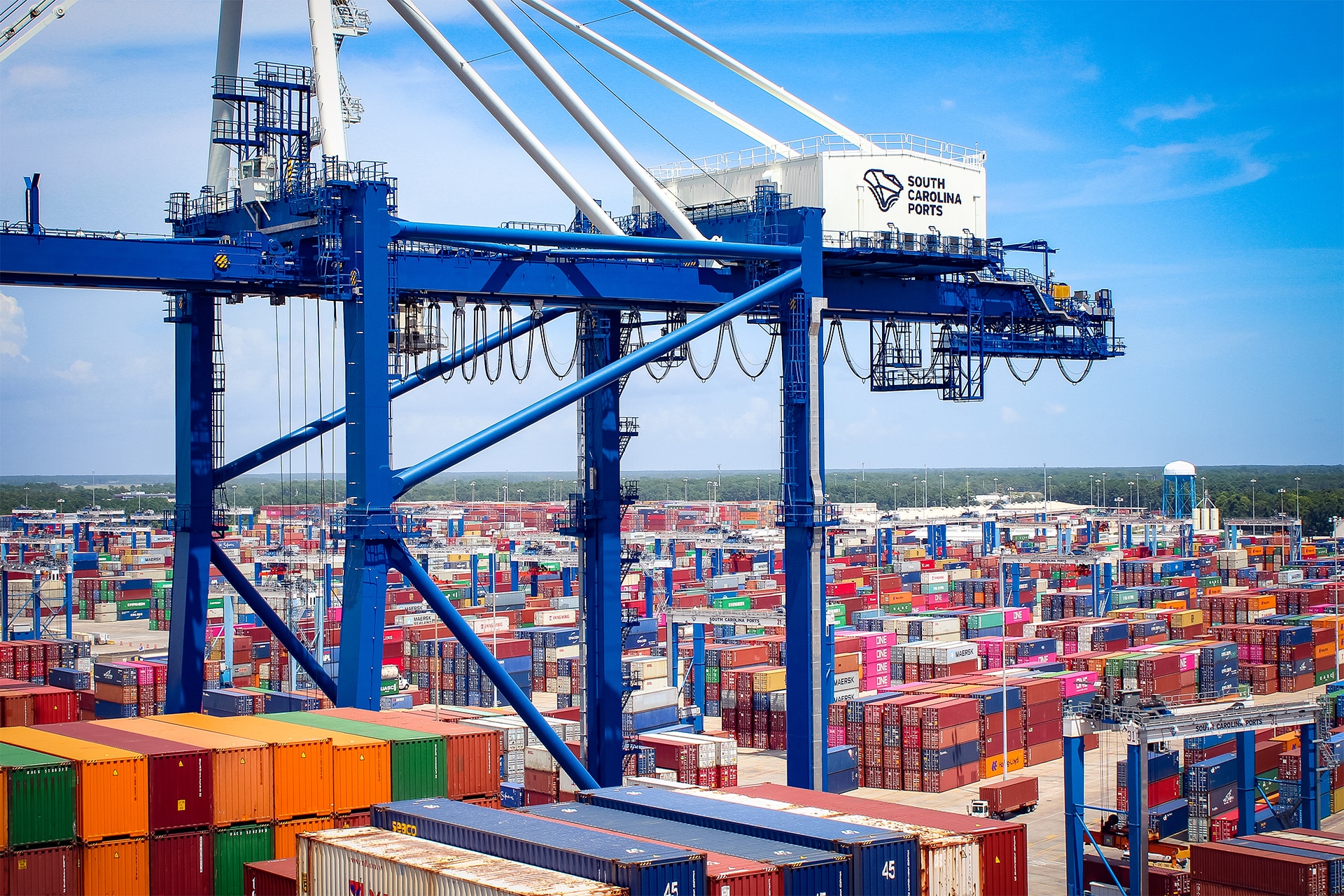U.S. ports covered by Port Tracker handled 1.93 million TEU – one 20-foot container or its equivalent – in March, the latest month for which final numbers are available. That figure was down 1.4% from February but up 18.7% from March 2023, when Asian exports were slow after the Lunar New Year business shutdowns.
Monthly inbound cargo volumes at major container ports in the United States are building, with March figures up significantly year over year and April looking to follow, so they should consistently run above two million twenty-foot equivalent units through the summer and then into early fall, according to the Global Port Tracker report from the National Retail Federation and Hackett Associates.
U.S. ports covered by Port Tracker handled 1.93 million TEU – one 20-foot container or its equivalent – in March, the latest month for which final numbers are available.
That figure was down 1.4% from February but up 18.7% from March 2023, when Asian exports were slow after the Lunar New Year business shutdowns.
Ports haven’t reported April’s numbers yet, but Port Tracker projected volume for the month at 1.96 million TEU, up 10% year over year. Its May forecast is for 2.06 million TEU, up 6.8% year over year to tie last October for the highest level since 2.26 million TEU in August 2022. The June forecast is for 2.03 million TEU, up 10.7% from the month last year, with July at 2.02 million TEU, up 5.5% year over year, August at 2.1 million TEU, up 7.1%, year over year and September at 2.04 million TEU, up 0.5% year over year.
Monthly volume has reached the two million TEU mark only twice since a 19-month streak that ended in October 2022, Port Tracker noted.
Cargo volume in the first half of 2024 is expected to total 11.9 million TEU, up 13% from the same period last year. Imports during 2023 totaled 22.3 million TEU, down 12.8% from the previous year.
“We haven’t seen numbers this high for this many months in almost two years,” Jonathan Gold, NRF vice president for supply chain and customs policy, said. “Regardless of what headlines about the economy might say, consumers are shopping and retailers are making sure they have merchandise on hand to meet demand. The supply chain has adjusted to recent disruptions and retailers will work to keep the flow of goods moving smoothly as the back-to-school and holiday seasons approach.”
Hackett Associates founder Ben Hackett said, pointing to a recent downturn in containerized products such as furniture, clothing and electronics: “Even with a shift in spending from goods to services, U.S. consumers continue to spend on goods. We are still seeing a strong volume of goods flowing into ports despite global geopolitical turmoil, high interest rates and a slowdown in economic growth. There has been a surge of container imports on all three coasts, with the strongest being the Gulf, followed by the Pacific and the East Coast. The issue now is whether this surge will continue or level off.”
Global Port Tracker, produced for NRF by Hackett Associates, provides historical data and forecasts for the U.S. ports of Los Angeles/Long Beach, Oakland, Seattle and Tacoma on the West Coast, New York/New Jersey, Port of Virginia, Charleston, Savannah, Port Everglades, Miami and Jacksonville on the East Coast, and Houston on the Gulf Coast.





